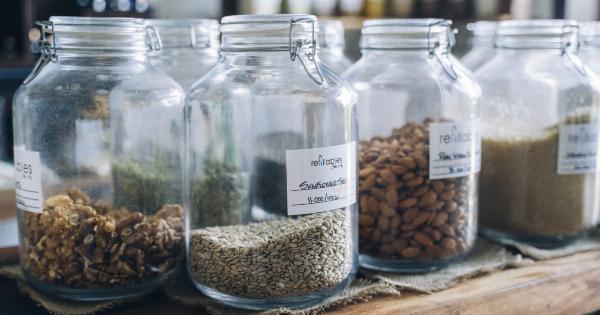With concern for health and wellness on the rise, people have begun to question the safety of the foods they eat. This has led to a growing demand for organic foods.
In recent years, organic foods have soared in popularity as people seek ways to improve their health.
What Are Organic Foods?
Organic foods are those grown without the use of synthetic fertilizers, pesticides, or herbicides and without genetic modification. Organic crops are grown using natural methods such as crop rotation and the use of compost and manure.
Organic livestock are raised without the use of hormones or antibiotics and are fed mainly organic feed.
The Benefits of Organic Foods
Organic foods have many benefits, including:.
High Nutritional Value
Organic foods are grown in nutrient-rich soil, which results in higher levels of vitamins and minerals than conventionally grown foods.
Organic foods are also free of harmful chemical pesticides and fertilizers that can drain nutrients from the soil and decrease the nutritional value of the food.
Better Taste
Organic foods are often thought to have a better taste than conventionally grown foods. This may be due to the higher nutrient content of the soil, which can affect the taste of the food.
Reduced Exposure to Harmful Chemicals
Conventional farming methods often use synthetic fertilizers, pesticides, and herbicides that can be harmful to human health. Prolonged exposure to these chemicals can have a negative impact on overall health and well-being.
Organic foods are grown without the use of these harmful chemicals, reducing the risk of exposure.
Increased Antioxidants
Organic foods contain higher levels of antioxidants, which help protect the body against free radicals. Free radicals are unstable molecules that can cause damage to cells and contribute to the aging process.
Antioxidants are essential for maintaining good health.
Safer for the Environment
Organic farming methods are generally considered to be safer for the environment. Synthetic fertilizers, pesticides, and herbicides can cause damage to the environment, including water pollution and soil degradation.
Organic farming methods are more sustainable and protect the environment from harmful chemicals.
No GMOs
Genetically modified organisms, or GMOs, have been a controversial topic for many years. Organic foods do not contain GMOs, offering consumers a safer and healthier option.
Better for Animal Welfare
Organic livestock are raised in more humane conditions than conventional livestock. They are allowed to graze on pasture and are not given hormones or antibiotics. This results in healthier, higher-quality meat and dairy products.
Reduced Risk of Foodborne Illness
Organic foods are less likely to be contaminated with harmful bacteria than conventionally grown foods. This is because organic farming methods emphasize good hygiene practices and use natural methods to control pests and diseases.
How to Transition to Organic Foods
If you want to transition to organic foods, there are several steps you can take:.
Start Small
Transitioning to an all-organic diet can be overwhelming. Start small by incorporating one or two organic items into your diet each week. This can help you get used to the taste and texture of organic foods.
Shop at Farmers Markets
Farmers markets are a great place to find locally grown, organic produce. Talk to the vendors about their farming practices to ensure you are getting high-quality, organic products.
Buy in Bulk
Buying organic foods in bulk can be a cost-effective way to transition to an all-organic diet. Look for bulk bins at your local grocery store or co-op.
Grow Your Own
Growing your own organic produce is another way to ensure that you are getting high-quality, pesticide-free food. Even if you don’t have a lot of space, you can grow herbs and vegetables in containers on a balcony or patio.
Conclusion
Organic foods offer many benefits, including higher nutritional value, better taste, reduced exposure to harmful chemicals, increased antioxidants, and safer farming practices.
Transitioning to organic foods can be a gradual process, but the benefits to your health and well-being are worth it.




























